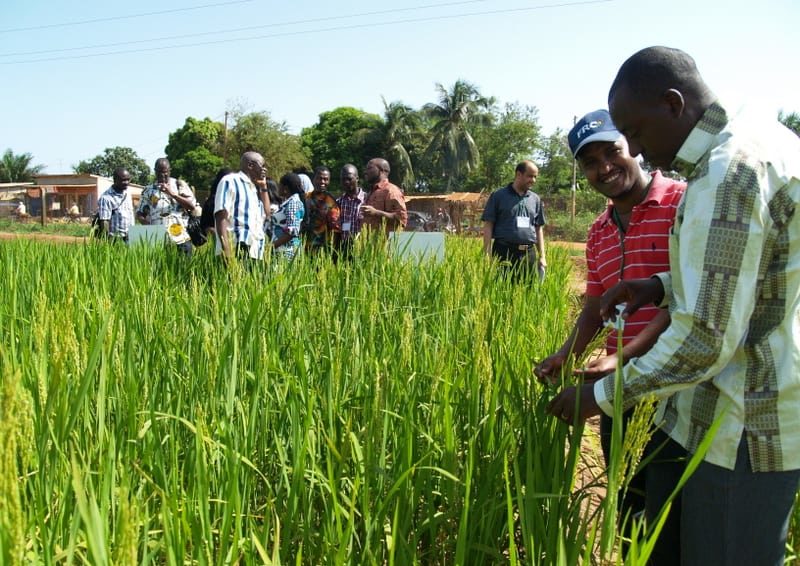Ivory Coast rice farmer Francois Kasse Yao has long struggled to make ends meet, facing unpredictable weather conditions and producing only one harvest per year. However, a groundbreaking new rice variety is transforming his prospects, allowing for more frequent and abundant harvests.

The new rice grain was introduced as part of a nationwide program designed to boost the output of the regional staple food and reduce the country’s dependency on rice imports. This innovative rice variety, which is drought-resistant, allows farmers like Yao to harvest up to seven times a year, with yields reaching 5 metric tons per hectare.
This agricultural breakthrough is not just a boon for local farmers but also a significant step towards strengthening the nation’s food security. By reducing reliance on foreign imports, the Ivory Coast can enhance its self-sufficiency and bolster its economy.
The introduction of this new rice variety is coupled with enhanced farming techniques, including better irrigation, mechanization, and the development of short-cycle drought-resistant seeds. Before these advancements, farmers in some areas struggled to yield even one metric ton per hectare.
“Today’s yields are better,” said Yao, a 52-year-old farmer from the village of Subiakro, located 14 kilometers from Yamoussoukro, the Ivorian capital. “This time we’ve started with a new variety, so today we’re doing just fine.”

Hermann N’Guessan Kouame, a fellow farmer from a neighboring village, praised the new rice variety for its resilience and superior taste, qualities that make it highly valued in local markets. “The grain is not only drought-resistant but also has a unique aroma and flavor that is well-appreciated by consumers,” Kouame explained.
The average market price for this newly milled rice is 650 CFA francs ($1.09) per kilogram, a price point that reflects its quality and demand.
“When you plant it, no matter how the weather changes, it’s always intact,” said Kouame, who tends a 44-hectare plot in Zatta, about 15 kilometers from Yamoussoukro.
The national output of local white rice is currently estimated at 1.4 million metric tons, with expectations of significant growth as more farmers adopt this high-yield variety. According to agricultural experts, this could help bridge the gap between local production and demand, reducing the country’s reliance on imported rice.
The government’s agricultural program aims to further enhance production capacities, with plans to expand the use of modern farming techniques and provide ongoing support to local farmers. This initiative is part of a broader strategy to revitalize the agricultural sector and promote sustainable economic growth in the Ivory Coast.



